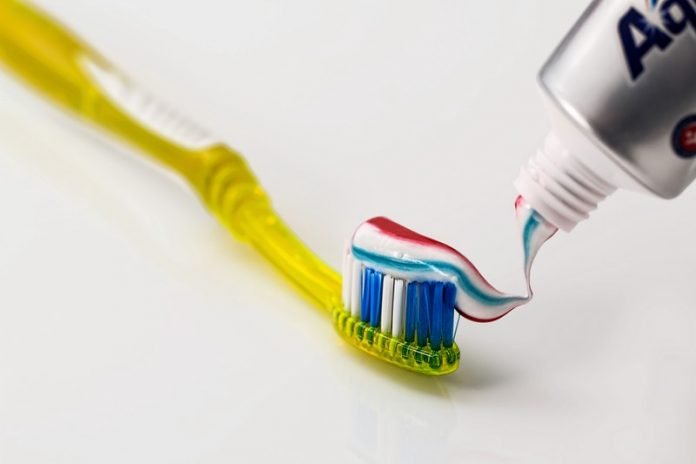
It is known that tooth and gum diseases not only can harm your oral health but also can harm your heart and brain.
Previous research has shown that gum diseases may increase the risks of many chronic conditions, such as Alzheimer’s disease, type 2 diabetes, heart disease, stroke, and erectile dysfunction.
For example, one study found that a gum disease called gingivitis plays a decisive role in whether a person develops Alzheimer’s disease.
Another study found that treating periodontitis (a gum disease) could help people with Type 2 diabetes manage their blood glucose levels.
So how to brush teeth carefully to prevent gum diseases?
Researchers from the University of Dundee suggest people do these four things:
Use an electric toothbrush and brush two minutes
Taking two minutes to brush teeth can help remove plaque and people should brush at night and one other time daily.
An electric toothbrush can be more effective than manual brushing and a small toothbrush head helps to reach all areas in the mouth.
Use fluoride toothpaste
Your toothpaste can make a big difference. The key ingredient is fluoride, which evidence shows prevent tooth decay.
Fluoride replaces lost minerals in teeth and also makes them stronger.
For maximum benefit, use toothpaste with 1350-1500 ppmF to prevent tooth decay. PpmF is the concentration of fluoride in parts per million.
It is possible to get higher strength fluoride toothpaste from your dentist if you have a high risk of tooth decay.
Spit out toothpaste, but don’t rinse
People produce less saliva at night than during the day. This makes teeth have less protection from saliva and are more vulnerable to acid attacks.
It is important to remove food from teeth before bed so plaque bacteria can’t feast overnight.
Researchers suggest people don’t eat or drink anything except water after brushing at night.
Importantly, when people finish brushing, they should not rinse your mouth with water or mouthwash. This is because doing so can wash away the fluoride.
This can help reduce tooth decay by up to 25%.
Reduce sugar intake in your daily diet
Sugars found naturally in foods like fruit are far less likely to cause tooth decay than added or free sugars.
Free sugars are generally those added to foods by manufacturers but also include honey, syrup and fruit juices.
The World Health Organization and NHS recommend free sugars should not make up higher than 5% of daily calorie intake.
In addition, how often people eat sugar matters. Sugar is easier for bacteria to digest than proteins or complex carbohydrates.
Fluoride toothpaste and the remineralizing effects of saliva can help teeth recover from the early stages of these attacks.
Copyright © 2019 Knowridge Science Report. All rights reserved.



